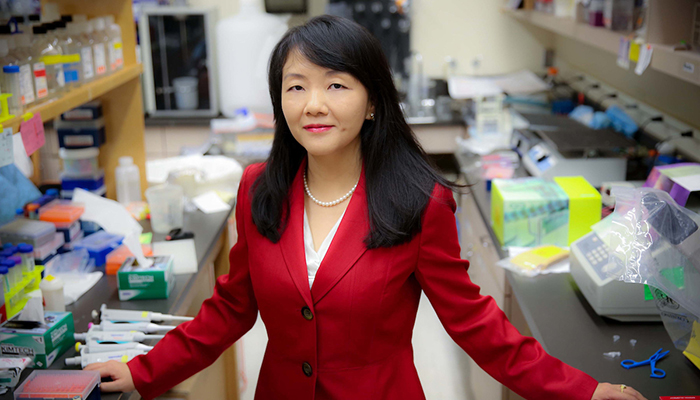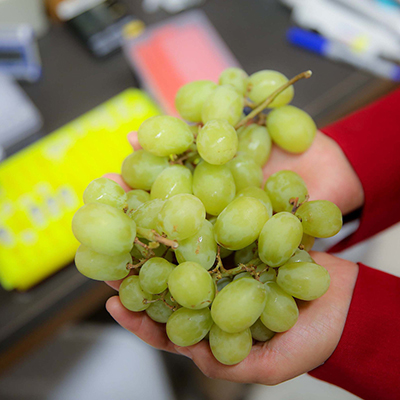Could grapes be the ‘magic bullet’ for cataracts?
By Jan Jarvis

Grapes are more than sweet treats in the eyes of one UNT Health Science Center researcher, who is studying how the fruit can prevent cataracts.
Whether they’re green, red or black, grapes appear to have significant health benefits, said Hongli Wu, PhD, Assistant Professor of Pharmaceutical Sciences and in the North Texas Eye Research Institute.
 With the help of a $30,000 grant from the California Table Grape Commission, Dr. Wu plans to show that grapes play a significant role in preserving eye health.
With the help of a $30,000 grant from the California Table Grape Commission, Dr. Wu plans to show that grapes play a significant role in preserving eye health.
“I hope to prove that eating grapes could be the magic bullet in the fight against cataracts,” she said.
Cataracts affect more than 22 million Americans and are the leading cause of blindness worldwide. By age 80, more than half of adults in the United States will have a cataract or undergone surgery to remove one.
Dr. Wu made a connection between grapes and cataracts based on studies that show people living in the Mediterranean basin live longer, healthier lives than other populations. Their diet, which includes a lot of grapes and wine, has been shown to have numerous health benefits.
“They also have fewer cataracts than other aging populations,” Dr. Wu said. “This gives us a clue that grapes may have anti-cataract benefits.”
The research is conducted using a freeze-dried whole grape powder, designed to facilitate reproducible data and to provide researchers with a sample that is available year round.
For her research, Dr. Wu is focusing on cataracts caused by ultraviolet light, which has been shown to be a risk factor. Studies suggest that antioxidants protect the function of cells and that a decrease of antioxidants may be a factor in the decline of vision.
“Grapes boost the body’s antioxidant enzymes, which work to directly fight free radicals to maintain balance in the lens so that the eye is more resistant to aging,” she said. “My hypothesis is that grapes not only directly fight against free radicals, they also boost the self-defense system.”

![Uyen Sa Nguyen Scaled[58]](https://www.unthsc.edu/newsroom/wp-content/uploads/sites/16/Uyen-Sa-Nguyen-scaled58-145x175.jpg)



Social media